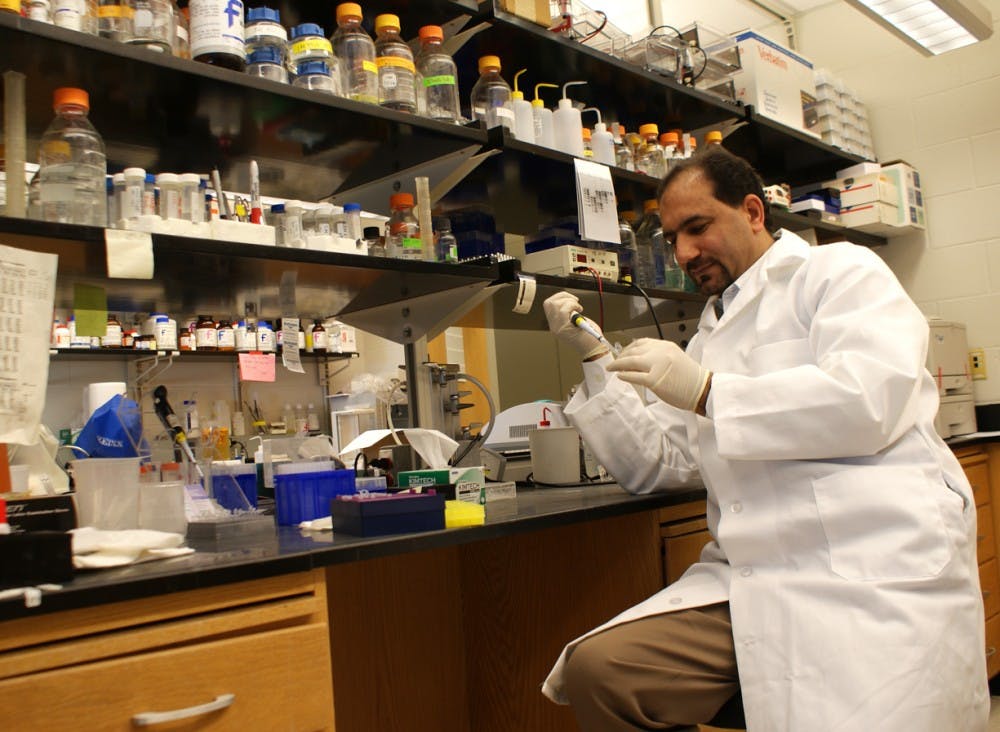Patients afflicted with multiple sclerosis may soon have the treatment they’ve been waiting for.
In a study published in the Jan. 27 issue of the journal Neuron, University researchers outlined their controversial finding that the reviving of the nodes of Ranvier can prevent the chain reaction that results in MS, a chronic, often disabling disease that attacks the central nervous system.
Led by cell and molecular physiology professor Manzoor Bhat, the study uncovered a molecular mechanism in nerve fibers that is crucial to conducting neural impulses, the messengers that communicate between the brain and the body.
And it defied all of the earlier findings.
“There is a lot of controversy going on over this because the results go against the other studies done on the same topics,” said research associate Courtney Thaxton, the lead author of the study.
The study found that the nodes of Ranvier, which facilitate the neuron’s conduction process, keep myelin segments from overlapping. Thaxton said this is important because if the segments touch they stop the neuron from functioning and cause MS.
Previously, scientists did not fully understand the nodes of Ranvier’s effect on the neuron’s function, she said.
“The important thing is to not let the myelin touch,” Bhat said. “These nodes … do not allow the paranodes to touch.”
The findings could lead to a way for doctors to remake the nodes of Ranvier in patients who are in the early stages of MS. By regrowing the nodes, doctors could prevent the myelin from overlapping and disintegrating, possibly halting the disease.



